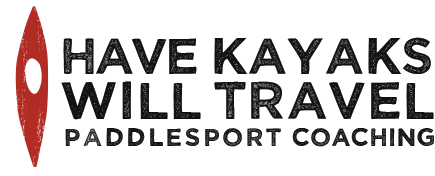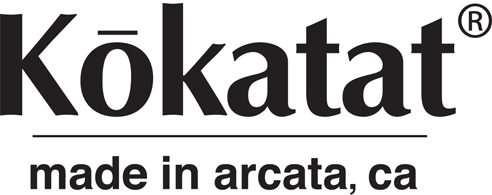This poem was sent to us by Mark Hochmuth, who participated in a course we taught in Grand Marais, MI this summer. November 22, 1963 ‘Twas fifty years ago will hear that many times more the event cannot be ignored it remains a memory evermore One thousand days of Camelot ending when JFK was shot I remember that day as if it were today Miss Powell’s sixth grade room just before noon voice on the P.A. said President Kennedy is dead Some sobbed with heads bowed others cried out loud Ricky Davis did say: “My dad didn’t vote for him anyway.” A hero of the Second World War younger than any president before gone in his prime leaving Jackie, John Jr. and Caroline Civil rights and public service Bay of Pigs and Cuban missile crisis Berlin air lift and space race Peace Corp and Vietnam War Time has put him to the test short and mixed legacy at best he was not perfect you see but neither are we Idealist realist politician humanist John Fitzgerald Kennedy not only in Arlington Cemetery but as spoken by Pericles: “…graven not so much on stone as in the hearts of men.” Mark Hochmuth 11-4-2013...
Sea kayak leadership vs. the NFL
This morning dawned windy and warm — apparently perfect paddling weather as long as you didn’t look beyond your window. Which, of course, we did. In fact, we knew a dangerous storm system was coming the night before and had already chosen not to paddle on Lake Michigan. At 8 a.m. it was obvious that we’d be having serious, dangerous storms moving through. By 11 a.m., the warnings were dire: Or to put it in graphical form: Meanwhile, at Soldier Field, preparations for the football game between the Chicago Bears and the Baltimore Ravens continued. The stadium was packed with 63,000 fans and the game was in the first quarter when the inevitable storm struck. At that point, the game was “temporarily suspended” and everyone was evacuated from the stands because of severe weather. The NFL claimed surprise that such a drastic step was necessary. USA TODAY Sports quoted NFL spokesman Michael Signora stating, “Weather is unpredictable and there was a chance that the game could proceed without a delay.” Really? No revenue was lost, certainly. In fact, as a friend of ours attending the game noticed, more beer was likely sold because of the evacuation. We watched the glowering sky above the stadium and listened to the reports on the radio about the devastation caused in Washington, Illinois, about 150 miles southwest of the city. (There’s already a Facebook page for the town’s recovery.) We thought about this event in the context of the risk assessment we do every time we paddle. We try not to be influenced by external factors, such as the time we invested getting to the water, the disappointment of our fellow paddlers, or the money we might lose if we cancelled a class. It’s not always easy, and we don’t always do an impeccable job, but that’s what we strive for. The game eventually resumed, and as far as we know, nobody got hurt. Just as in paddlesports and all kinds of other pursuits, it appears they got away with a poor risk assessment. But you have to ask whether it was a risk worth...
Havekayakswilltravel.com is live!
Our website is finally live! This is the new home for our blog and a whole lot more. It’s also a place where we can publicize classes, post resources and share photos. We’ll add more to it over time. We’d love to know what you think! We have two people to thank. They are: Chris Hoffman of Faucethead Creative, our endlessly patient and hard-working friend and website designer, who also coached us on turning our blog into a business. Flo Katzenbach, our talented friend and former student, who designed our logo and our business card. Welcome to Have Kayaks, Will Travel, the...
Watching the water, thanks to NOAA/GLERL
We always check our favorite Lake Michigan meteorological observation station — the thermometer, anemometer and webcam located atop Chicago’s Harrison-Dever crib two-and-a-half nautical miles offshore. This NOAA Great Lakes Environmental Research Laboratory station, with its unimpeded view, is the best source of accurate wind data for the Chicago shoreline. We’ve never had much use for the webcam, however, which is too far above the water to provide any sense of wave height. Until now. This morning, when we checked the site, we discovered a new feature: A six-hour time-lapse of webcam images, taken every 10 minutes. They still flatten out the waves, but you can see boats go by, watch the light change, and admire reflections on the skyscrapers in the background. It’s really quite beautiful. NOAA has added the same feature to other area webcams. You can now watch the waves at Muskegon, South Haven or Michigan City, or the clouds over Alpena. (Um, guys, can you adjust the camera angle?) Seriously, we’re fortunate to have this service. The Great Lakes Environmental Research Laboratory has been instrumental in researching algae blooms and invasive species, collecting and forecasting water levels, and providing coastal forecasts and satellite images, among other environmental research activities. We rely on the data from the crib for an accurate sense of wind speed and direction. We also check it after we paddle to help us calibrate our internal anemometers. Thanks, GLERL. Another great service of the federal...
Photo Friday: What Does Force 5 Look Like
A “fresh breeze” of 17 – 21 kts (18 – 24 mph) is revealed in the water...
Photo Friday: Launching at The Gales 2013
Jake Stachovak prepares to launch at Bark Bay.
BCU canoe three-star training and assessment with Steve Macdonald
Alec and Pat tow a canoe during the three-star training The irony of paddlesports is this: The more we paddle, the less time we have to write about it. This has been a particularly busy time, between the courses we’ve been coaching, events we’ve been organizing, paddling for pleasure, and the training we’ve been doing. Hence the radio silence on our blog. Steve Macdonald, holding the fate of a very small canoeist in this hands. The center of our attention for the past two weeks has been Steve Macdonald, BCU Level 5 canoe and whitewater kayak coach from Scotland, who was here to run a series of BCU trainings and assessments that Summit Sports and Have Kayaks, Will Travel co-sponsored. This intensive period was followed by The Gales Storm Gathering, co-sponsored by Go Kayak Now, Summit and us. We’ll spend the next few posts catching up on all of this. This first post covers the 3* open canoe training and assessment we did with Steve. To be honest, we’ve invested most of our paddlesports energy in kayaks, so while we have worked on our canoeing skills and gotten out for some trips, an immersion in canoeing has been long overdue. And that’s just what we got. For two days, we worked on being efficient and effective in single-bladed craft. Steve compares paddling a canoe to moving a barge with a matchstick. It’s not inherently easy, so efficiency is of the essence. If it feels hard, he says, change what you’re doing to minimize your effort. Sailing with the aid of an additional canoe. We spent time working on propulsion and steering, poling and rescues. We explored the effects of tilt and trim, and we paddled both tandem and solo. We came to appreciate a core concept for the 3-star canoeist: the fine balance between propulsion and steering in a forward J-stroke. Steering around a buoy during the three-star training. Poling, a shallow-water technique particularly useful on rivers. While we worked on specific skills, we also gained an understanding of the BCU canoeing philosophy, which is to use one general-purpose canoe with a variety of techniques and in a variety of environments and conditions. This surprised us at first, but we came to enjoy just how much we could really do with that one canoe. And all the while, we observed and appreciated Steve’s coaching techniques–a seamless integration of so many of the approaches we’ve been studying and practicing. Receiving feedback from Steve Macdonald. There’s no doubt that what we learned about canoeing is hugely beneficial for our kayaking, too, as well as our coaching. It’s all paddlesports; it’s all about how we use our bodies, boats and blades to achieve the desired action in the...
Photo Friday: All boats, big and small
DuSable Harbor, September 19,...
4 questions for: Steve Macdonald, on Coaching the Mind
Steve Macdonald. We’re eagerly anticipating the arrival of Steve Macdonald, a BCU Level 5 Coach from Scotland who is a technical adviser to outdoor centers in the UK and is also certified in telemark and Nordic skiing as well as mountaineering. Steve is one of the featured coaches at the upcoming Gales Storm Gatheringin the Apostle Islands. He will also be offering a number of BCU courses in the Chicago area, which are co-sponsored by Have Kayaks, Will Travel and Summit Sports, during the week before that event. One of these is the three-hour Coaching the Mind module, which will be offered on Wednesday, Oct. 2 in the evening in Oak Park. We talked with Steve about this course, which is being offered for the first time in the midwest. Have Kayaks, Will Travel: What excites you about this module? Steve Macdonald: The fact that it allows coaches to understand a bit more of the psychology that their clients might be experiencing. This can help them get the best out of a coaching episode and, more importantly, their ongoing paddlesport development. Mental skills are very fundamental. People have confidence issues, anxiety issues and all of that stuff, so it’s very relevant. HKWT: What do you find participants gain from it? SM: I think it broadens people’s coaching, moving it away from just thinking of coaching only in terms of technical skills. You’re familiar with TTPP, right? Generally, recreational coaches are focused on techniques and tactics, and [this module] helps make them more holistic coaches. HKWT: Will it also be applicable to people who teach or coach things other than paddlesports, such as gym teachers, soccer coaches and ski instructors? SM: Absolutely. We’ll look at how mental skills training is going to help in a training context, in a performance context and even in a competitive context. Some of the key things that we’re going to be focusing on are imagery, concentration and attentional focus. We’ll look at how to manage anxiety and deal with confidence issues, making sure people aren’t overstimulated by the environment. It’s all about preparing people to be doing something in an environment when that environment might be stressful. There’s lots of sideways, tangential applications. Steve coaching a group of students in Ireland. HKWT: Will this be primarily lecture, or will there be other activities as well? SM: It should be interactive. There will be information at the front, but then we’ll go out and workshop some of the strategies we’ve been talking about. There’s no point in doing it unless we’re doing it, you know? We’re paddlesport coaches; we understand that learning has to take place in a practical context. The games, activities and exercises we do will be to reinforce the theoretical stuff...







